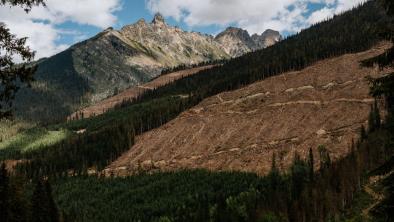Federal ministers took action on endangered species due to lawsuit: lawyers
Ottawa Citizen
The federal ministers responsible for protecting endangered species took action on four critically threatened species because they were facing court action, their lawyer told a Federal Court judge on Thursday.
Since the Federal Court lawsuit was filed by a coalition of environmental groups more than a year ago, the fisheries and environment ministers have posted a final recovery strategy for Pacific humpback whales and draft strategies for marbled murrelet and Nechako white sturgeon.
A commitment was made to the court that a draft plan for the fourth and final species named in the court action, the southern mountain caribou, will be posted by Jan. 17.
"It is not a comfortable position for the minister to be sued and to have me writing letters saying, 'Now listen, you have to do something about this file or there could be some serious consequences,'" Brian McLaughlin told the court.
"The reason why these were put on top of the file was because of this litigation."
The groups launched the court action because the final recovery strategies required under the Species At Risk Act were between four and six years overdue.
They say there are 167 federally recognized endangered and threatened species in the same legal limbo, and they're asking Judge Anne MacTavish to order Ottawa to publish final recovery strategies, as required under the law.
The problem, McLaughlin told the court, is the "huge backlog."
"The government has made some progress in whittling it down, but it's still unacceptably high and it exposes the minister to being pulled into court to justify on a species-by-species basis why the ministers have failed to post recovery strategies," he admitted.
But the ministers did not commit to the court to meeting a 90-day timeline set out in the legislation for turning their draft recovery plans into final recovery strategies, with all the protections those offer.
MacTavish pointed out that there are 167 species for which the ministers have not complied with their legal obligations.
"Where does that leave the applicants? To get the minister to do what the law requires him to do within the time limits prescribed by Parliament, do you expect the applicants to commence 167 other applications for judicial review and expend their time and resources, their clients' time and resources, the court's time and resources to get the minister to do what the law requires him to do?" the judge asked.
"The short answer to that question is, no, of course not," McLaughlin replied.
But he said there are different reasons for the delays in the case of each species.
"I suspect that the delay could be justified for some of those species and for some of those species, that might be hard," he told the judge.
Resources are not to blame for the backlog, MacTavish was told.
The federal Species at Risk Act came into force in 2003.
The court case was filed on behalf of the Wilderness Committee, Sierra Club, David Suzuki Foundation, Greenpeace and Wildsight, who say these four species in particular are affected by proposed developments in British Columbia, including the Northern Gateway pipeline.
A federal review panel approved the projected last month without the benefit of those final or draft recovery strategies for their consideration.
Oil and gas development — not protection of threatened species — is the priority of the Conservative government, said Gwen Barlee of the Wilderness Committee.
"It's not up to the government to arbitrarily decide how to interpret a law that's very clear and says the recovery strategies need to be produced in a certain period of time," she said.
This Canadian Press article also appeared in The Province, Macleans.ca, Calgary Herald, Edmonton Journal, Montreal Gazette, Metro News, Windsor Star and others.
Photo: WC Policy Director Gwen Barlee outside the courthouse (Kimberly Shearon)


